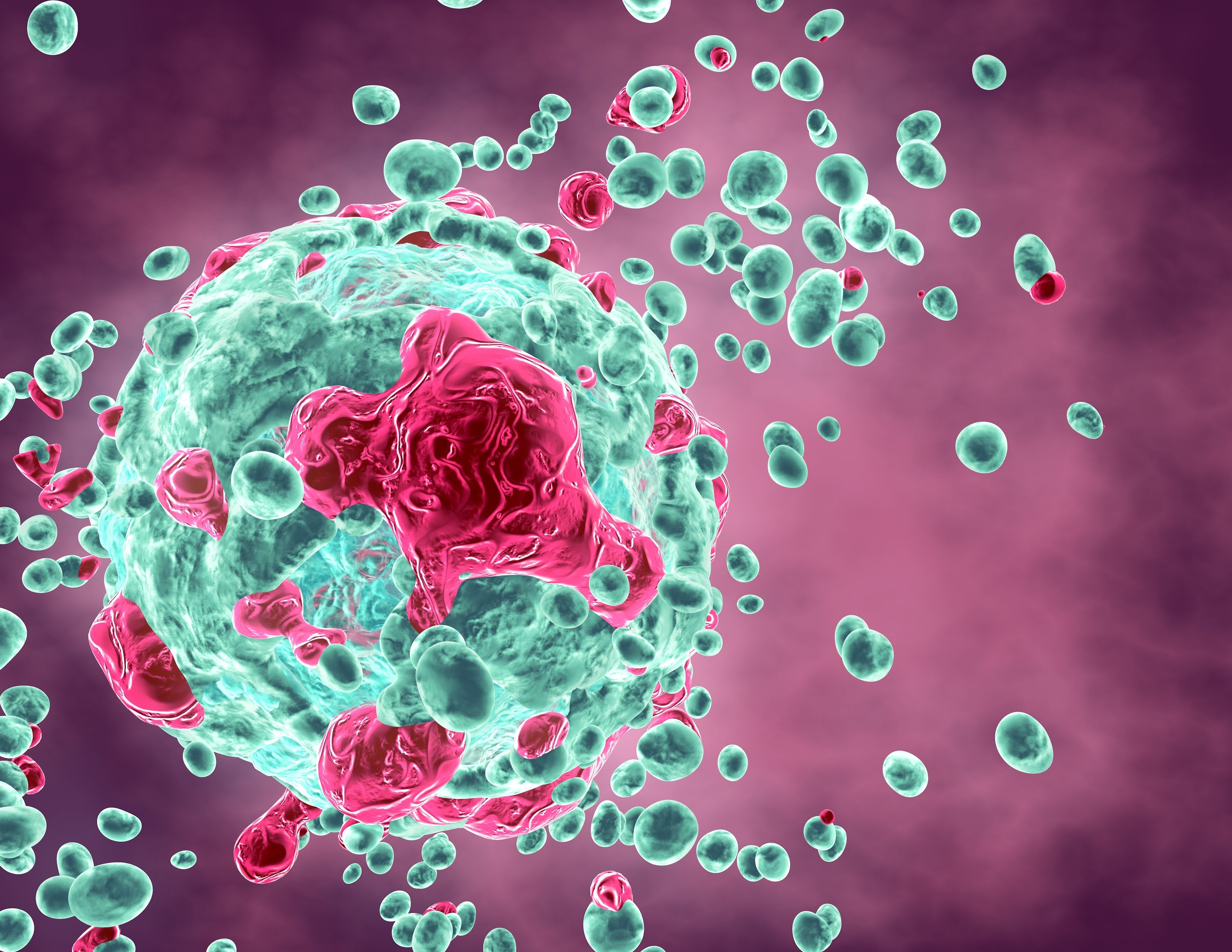Safety Committee Backs PH-762 Dose-Escalation in Skin Cancer Trial
A phase 1b trial is evaluating PH-762 for the treatment of cutaneous squamous cell carcinoma, melanoma and Merkel cell carcinoma.
Tumor concept illustration of melanoma: © picture-waterfall - stock.adobe.com

A safety monitoring committee (SMC) has recommended dose-escalation for a phase 1b trial (NCT06014086) evaluating PH-762 in cutaneous squamous cell carcinoma, melanoma, or Merkel cell carcinoma.1
PH-762 is a potent RNAi molecule that targets PD-1. The agent can inhibit the immune checkpoint PD-1 in the tumor, thereby impeding tumor growth.2
The phase 1b, multicenter, dose-escalation trial is assessing intratumoral PH-762’s safety and tolerability when used as a neoadjuvant treatment.1 The main goals of the trial are to evaluate the tumor response of PH-762 and determine the agent’s recommended dose for further study.
“We are impressed with the continuing safety profile of PH-762 having now progressed through the first 3 escalating doses,” said Mary Spellman, MD, Phio Pharmaceuticals’ acting chief medical officer, in a press release.
Enrollment is open to individuals with a single, accessible tumor (≥ 1.0 cm and < 3.0 cm longest dimension) of histologically confirmed cutaneous squamous cell carcinoma, melanoma, or Merkel cell carcinoma, suitable for both intratumoral injection and biopsy/surgical excision.2
Patients who were diagnosed with another malignancy within the prior 3 years, were undergoing current chemotherapy, radiation therapy, immunotherapy, or biologic therapy for cancer, or had any serious or uncontrolled medical disorder that may increase the risk associated with study participation or study drug administration, or interfere with the interpretation of study results will be excluded from the study. Females who are pregnant or are breastfeeding also are not eligible for enrollment.
The study is assessing escalating doses of PH-762, with an observation period between doses.
The primary end point of the trial is to determine the incidence, severity, seriousness and relatedness of all treatment-emergent adverse events. Secondary end points consist of pharmacokinetics, pathologic response, and tumor burden.
In dose cohorts 1 and 2, 7 patients with cutaneous carcinomas were previously treated. The second cohort included 4 patients with cutaneous squamous cell carcinoma. At day 36 in this second cohort, 2 patients had a complete response (100% tumor clearance), and 1 patient had a partial response (90% clearance). Further, all 3 patients in cohort 1 and 1 patient in cohort 2 maintained stable disease.
Three patients were previously enrolled in the third cohort of this trial. Injections were well tolerated in these patients and no serious adverse events or dose-limiting toxicities were observed.
According to the press release, pathology results related to efficacy of PH-762 in the third cohort are forthcoming.
“We are optimistic that the clinical trial will continue to demonstrate that PH-762 may present a viable non-surgical alternative to existing modes of therapy for skin cancer,” said Robert Bitterman, president and chief executive officer of Phio, in the press release.
References:
Phio Pharmaceuticals announces positive safety monitoring committee recommendation to advance INTASYL PH-762 skin cancer study to fourth dose escalation cohort. News release. Phio Pharmaceuticals Corp. April 9, 2025. Accessed April 9, 2025. https://tinyurl.com/4v79wdcw
Intratumoral PH-762 for cutaneous carcinoma. ClinicalTrials.gov. Updated January 28, 2025. Accessed April 9, 2025. https://clinicaltrials.gov/study/NCT06014086?term=NCT06014086&rank=1









